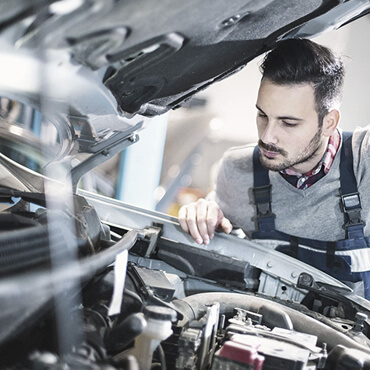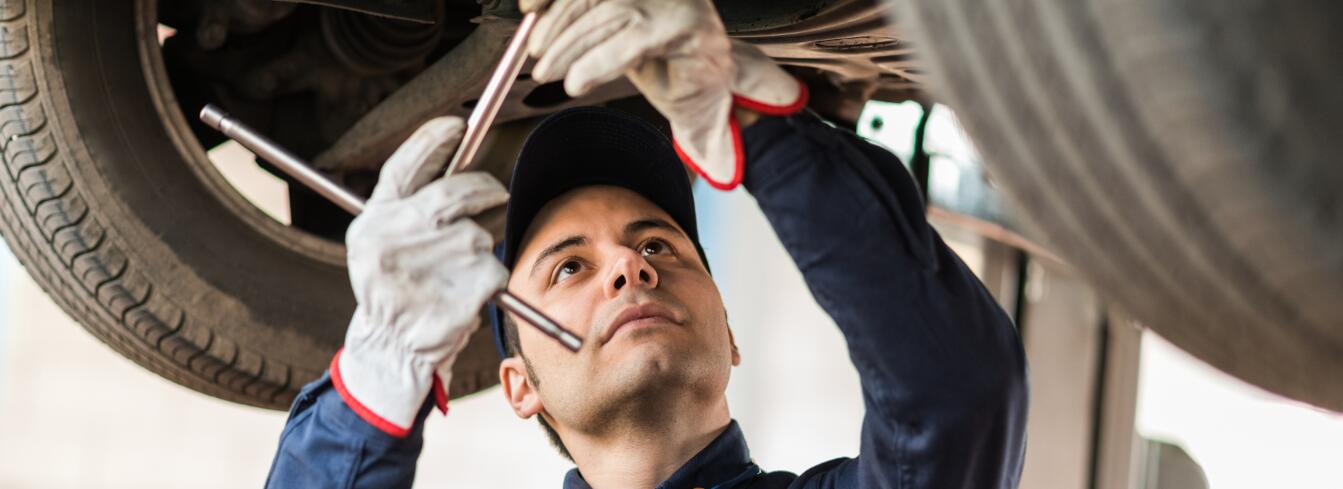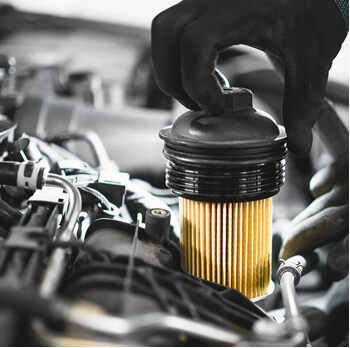Maintenance Tips

Take a clean rag with a small amount of dish soap and run the blades through the rag removing grime on your wipe blades.
Did you know that most newer car fuel pumps are located inside the fuel tank? Running the fuel low increases the fuel pump heat (fuel keeps the pump cool). Heat is the main reason that fuel pumps fail and lead to very costly repairs!
The pressure on your tires affects fuel economy, comfort, and handling of the vehicle. The owner’s manual has the recommended pressure for the vehicle. If your vehicle doesn’t have a monitoring system, there are gadgets and tools to help you check the pressure. You should check your tire pressure weekly.
Tire tread channels water away so the rubber of the tire can make contact with the ground. Modern tire manufacturers integrate treat wear bars into the tires, helping users know when the tires need to be changed. If your tires lack this, a popular method of testing is the penny test. Place a penny into the tire’s tread groove with the head toward the tire. If you can see Lincoln’s head, it’s time to replace your tires.
Your owner’s manual will indict the frequency that you should rotate your vehicle’s tires. If you don’t have it, a good rule of thumb is every 5,000 miles.
While parked, check all of your vehicle’s lights to make sure they work. This will help avoid a ticket. If a light is out, you can try to replace it manually if you’re comfortable, or visit us to check if it’s the bulb that needs to be replaced or something else.
While parked, check all of your vehicle’s lights to make sure they work. This will help avoid a ticket. If a light is out, you can try to replace it manually if you’re comfortable, or visit us to check if it’s the bulb that needs to be replaced or something else.
Maintenance Tips
Extend the life of your wiper blades.
Take a clean rag with a small amount of dish soap and run the blades through the rag removing grime on your wipe blades.
Don't run your fuel tank low.
Did you know that most newer car fuel pumps are located inside the fuel tank? Running the fuel low increases the fuel pump heat (fuel keeps the pump cool). Heat is the main reason that fuel pumps fail and lead to very costly repairs!
Check Your Tire Pressure
The pressure on your tires affects fuel economy, comfort, and handling of the vehicle. The owner's manual has the recommended pressure for the vehicle. If your vehicle doesn't have a monitoring system, there are gadgets and tools to help you check the pressure. You should check your tire pressure weekly.
Check Tire Tread
Tire tread channels water away so the rubber of the tire can make contact with the ground. Modern tire manufacturers integrate treat wear bars into the tires, helping users know when the tires need to be changed. If your tires lack this, a popular method of testing is the penny test. Place a penny into the tire's tread groove with the head toward the tire. If you can see Lincoln's head, it's time to replace your tires.
Rotate Tires and Check Alignment
Your owner's manual will indict the frequency that you should rotate your vehicle's tires. If you don't have it, a good rule of thumb is every 5,000 miles.
Check Your Lights
While parked, check all of your vehicle's lights to make sure they work. This will help avoid a ticket. If a light is out, you can try to replace it manually if you're comfortable, or visit us to check if it's the bulb that needs to be replaced or something else.
Check Fluids
Your car requires a variety of fluids to operate properly. The most prominent one is oil. Check your oil at least monthly and change it according to your owner's manual. Cars that aren't driven as much can go longer between changes. Other important fluids include transmission, power steering, brake, and wiper fluid.
Maintenance Tips

Extend the life of your wiper blades.
Don't run your fuel tank low.
Did you know that most newer car fuel pumps are located inside the fuel tank? Running the fuel low increases the fuel pump heat (fuel keeps the pump cool). Heat is the main reason that fuel pumps fail and lead to very costly repairs!
Check Your Tire Pressure
The pressure on your tires affects fuel economy, comfort, and handling of the vehicle. The owner’s manual has the recommended pressure for the vehicle. If your vehicle doesn’t have a monitoring system, there are gadgets and tools to help you check the pressure. You should check your tire pressure weekly.
Check Tire Tread
Tire tread channels water away so the rubber of the tire can make contact with the ground. Modern tire manufacturers integrate treat wear bars into the tires, helping users know when the tires need to be changed. If your tires lack this, a popular method of testing is the penny test. Place a penny into the tire’s tread groove with the head toward the tire. If you can see Lincoln’s head, it’s time to replace your tires.
Rotate Tires and Check Alignment
Your owner’s manual will indict the frequency that you should rotate your vehicle’s tires. If you don’t have it, a good rule of thumb is every 5,000 miles.
Check Your Lights
While parked, check all of your vehicle’s lights to make sure they work. This will help avoid a ticket. If a light is out, you can try to replace it manually if you’re comfortable, or visit us to check if it’s the bulb that needs to be replaced or something else.
Check Fluids
Your car requires a variety of fluids to operate properly. The most prominent one is oil. Check your oil at least monthly and change it according to your owner’s manual. Cars that aren’t driven as much can go longer between changes. Other important fluids include transmission, power steering, brake, and wiper fluid.
While you’re there, let us perform a Touch® Courtesy Check, which includes a visual check of the following items:
- Engine air filter
- Brake fluid
- Power steering fluid
- Automatic transmission fluid
- Coolant/antifreeze
Oil change near me? The next time you ask this question, just look for your neighborhood Car Repair Service.

Trust Our Products
For over 60 years, Car Repair Service has been helping drivers across North America maintain their vehicles. With ASE-certified mechanics in all of our stores, we can take care of all of your auto repair and maintenance needs.
From oil changes, filter replacements, and fluid flushes to brakes and brake repair, shocks and struts, muffler repair, tires, and wheel alignment, we’ve got you covered. Use the quick links in the gold bar to book an appointment at your Car Repair Service store today!